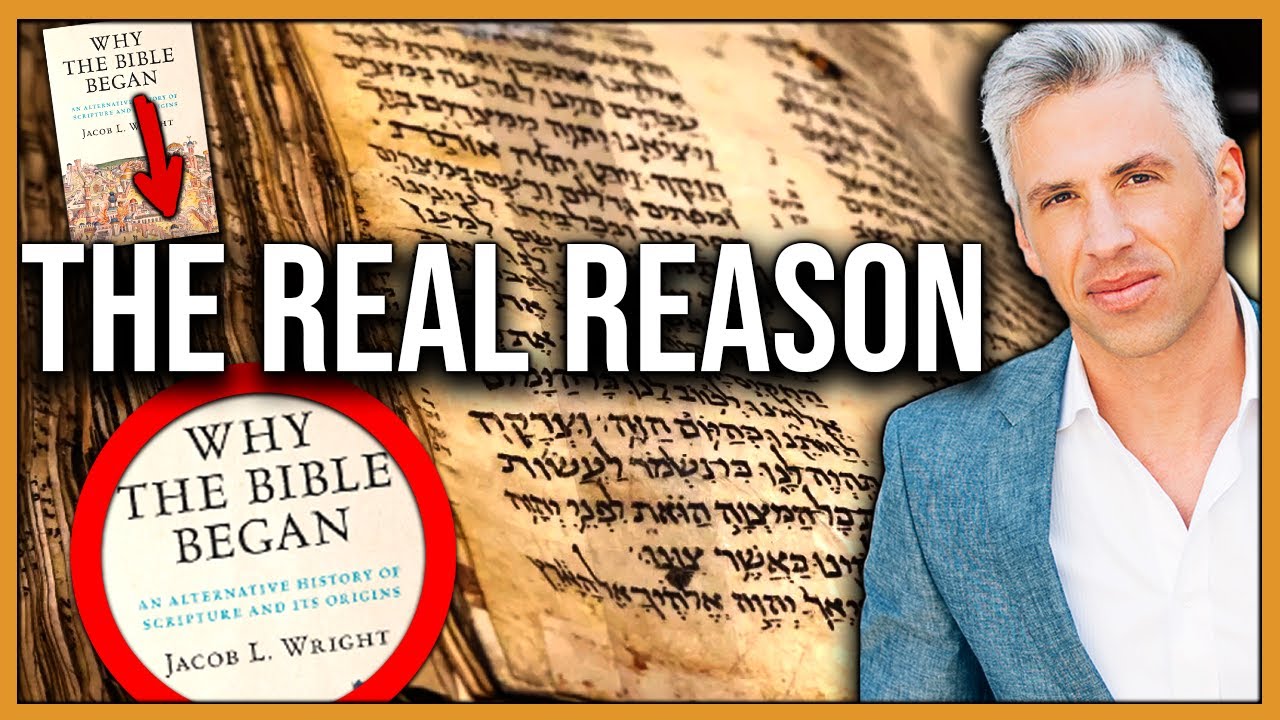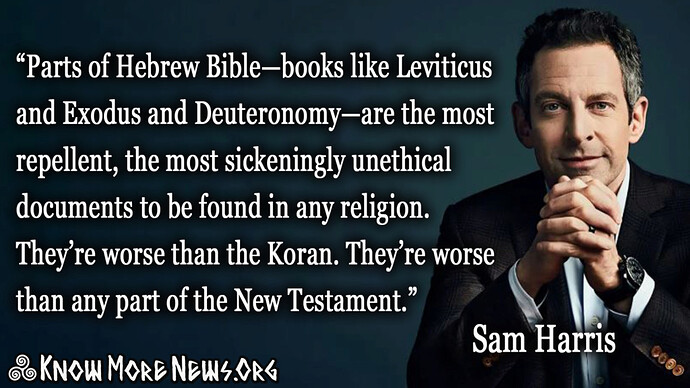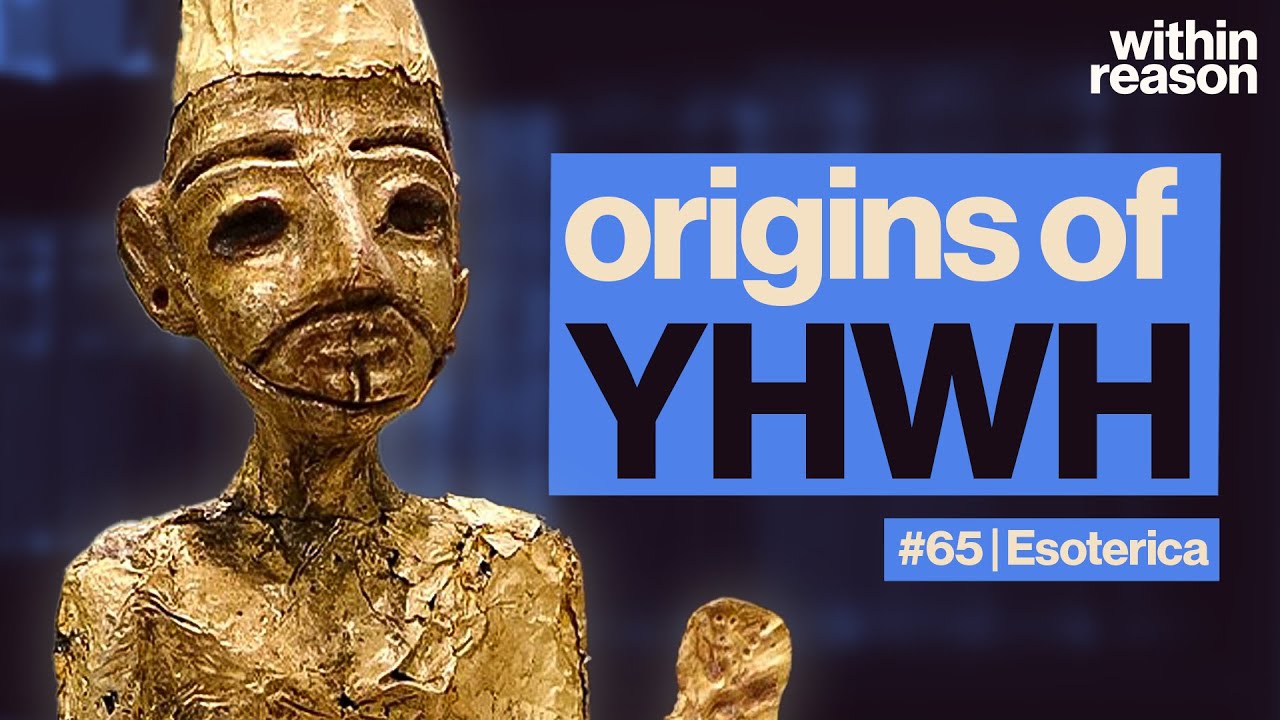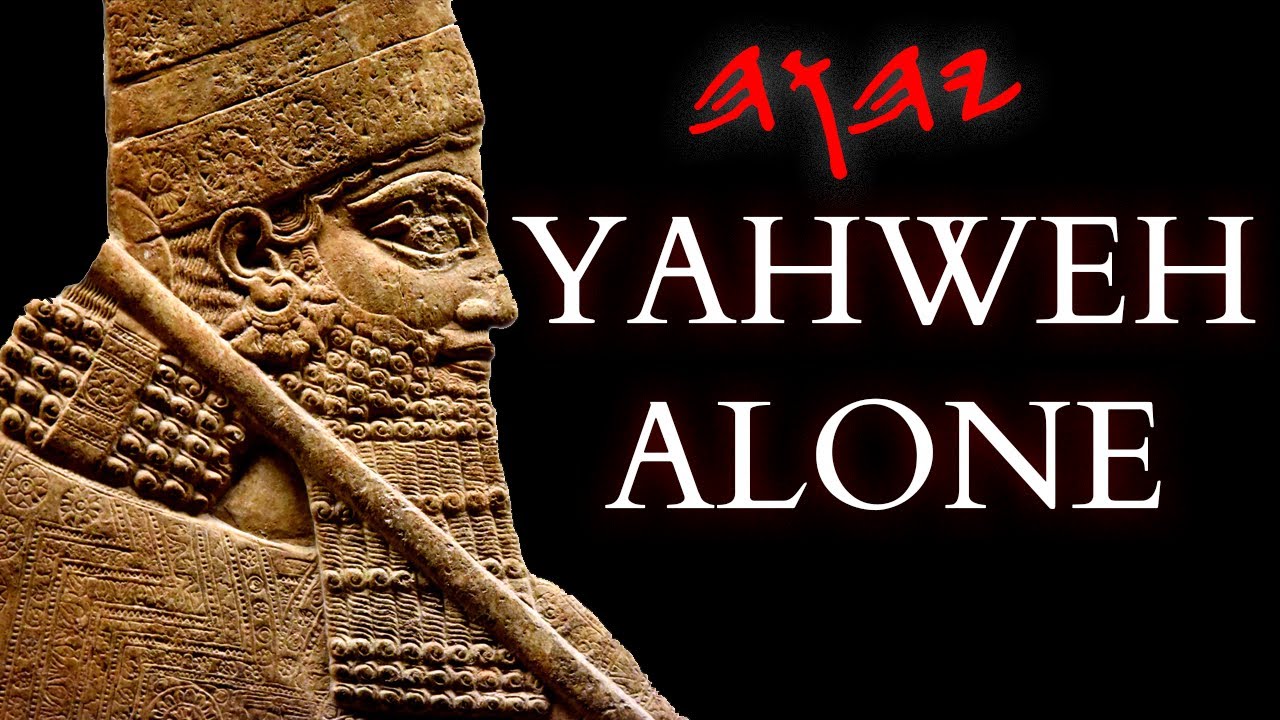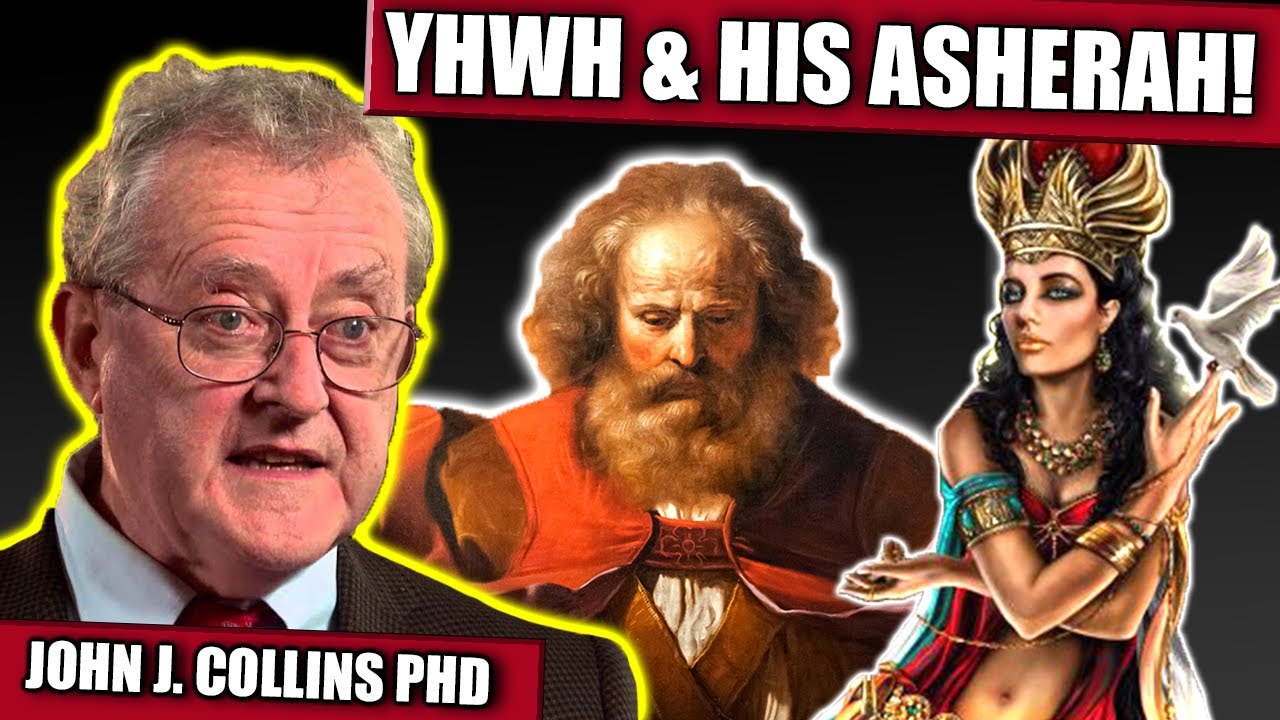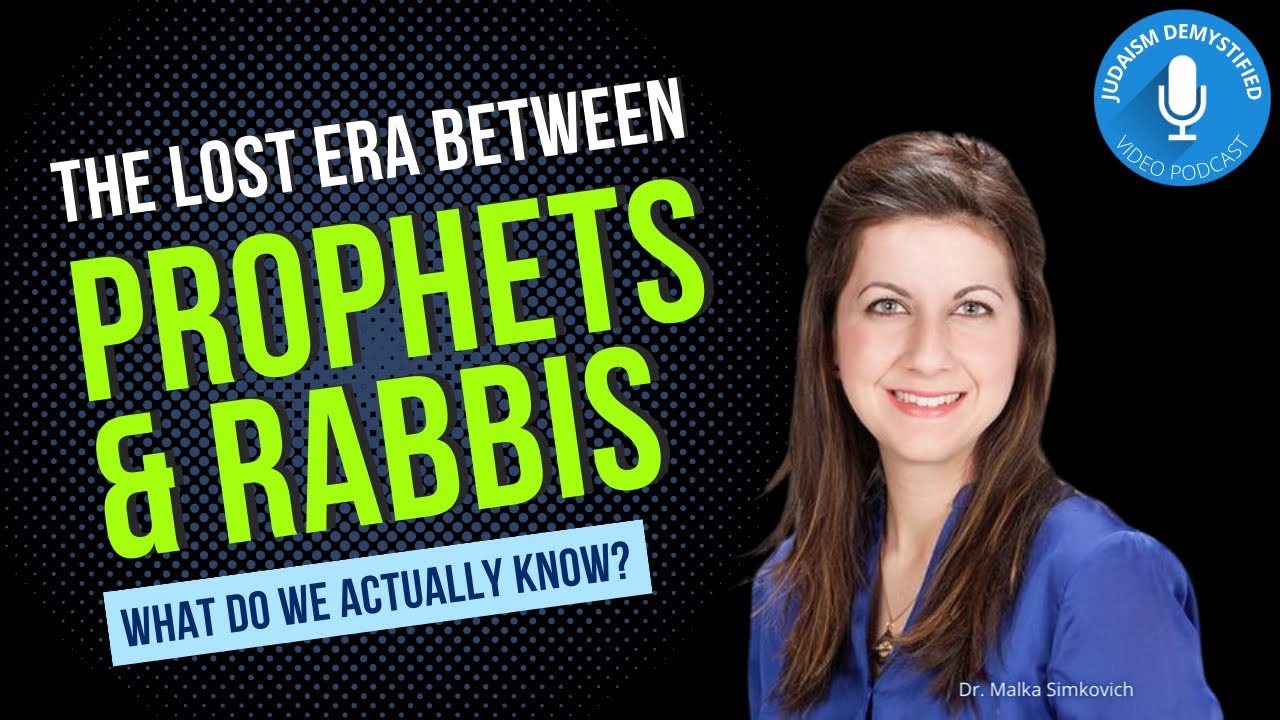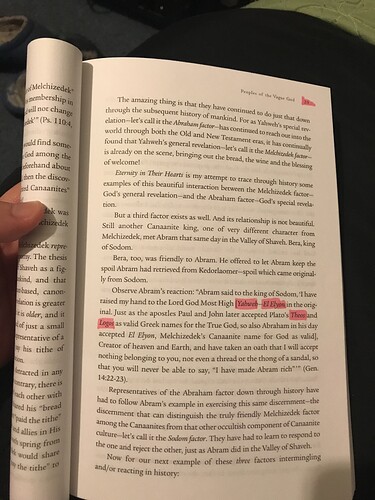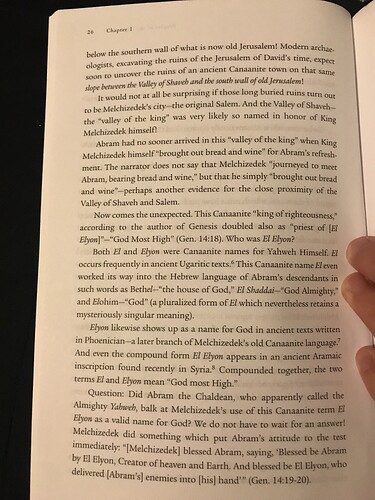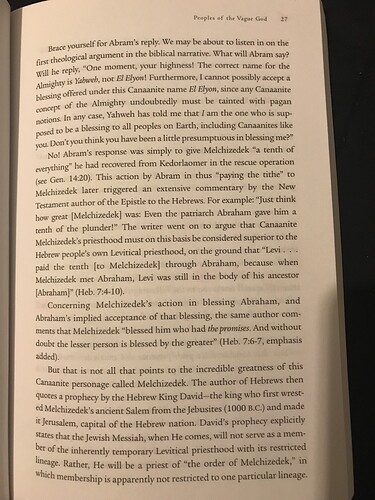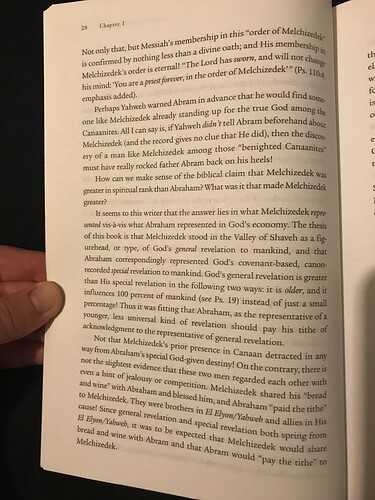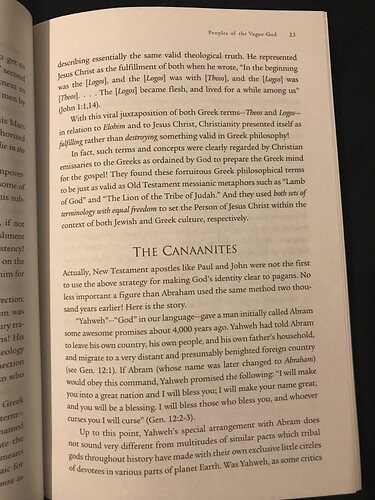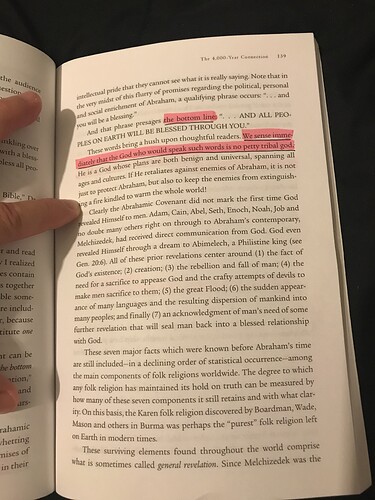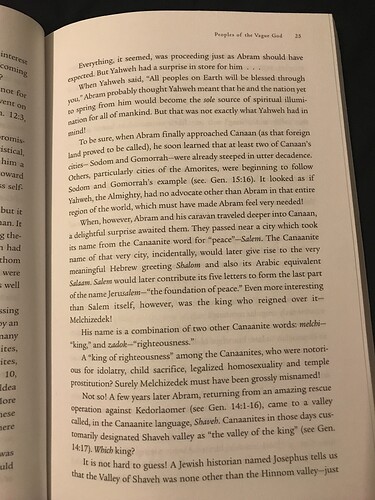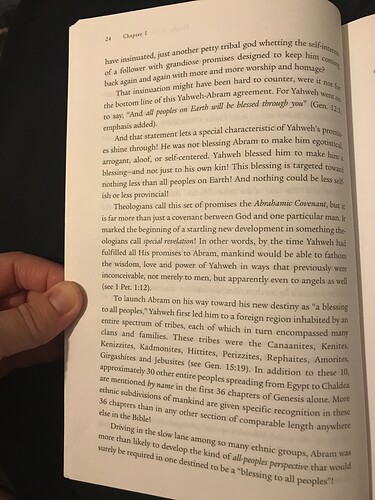Modern archeological and historical research shows that the advent of Judaism is more recent than traditionally thought. It occurred during the Hellenistic period and was preceded by Yahwism which was polytheistic, did not include widespread adherence to Torah law. Judaism and Christianity evolved from it. Yahwist practice continued concurrently with Judaism and Christianity during the Roman period.
Judaism is the product of appropriation.
From every host nation they were expelled from they took something.
Gnosticism, and Orphism are the sources of Abrahamism and their Kabbalism.
In these videos scholars present textual and archeological evidence for the late development of the Hebrew Bible and adherence to Torah law practice in Palestine.
Cited by Justin Sledge @ 50:29
Isaiah 45:6-7
King James Version
6 That they may know from the rising of the sun, and from the west, that there is none beside me. I am the Lord, and there is none else.
7 I form the light, and create darkness: I make peace, and create evil: I the Lord do all these things.
What’s your interpretation of the implications of this?
There’s a lot to unpack, of course, and that’s what I’m trying to do here. The Christian tradition that I grew up in typically pits its Judeo-Christian roots against its pagan/Greek roots. The implication here is that they were both products of the same source, that is, the Hellenistic culture that followed the conquest of Alexander. The Hebrew Bible and widespread Torah practice as we know it was produced during that period. Parallels to Plato’s Republic and the Timaeus are not accidental because the editors who produced the Hebrew scriptures would have been aware of Plato.
The Greeks and Romans and other writers of Hellenistic period respected what was ancient. They disrespected any new religion. So the Hebrew Bible was written in such a way to make it look like an ancient book similar to the way Virgil’s Aeneid made to look like Homer’s Odyssey.
The Torah which purports to be the oldest of the Hebrew scriptures, in the form we have it, probably dates no earlier than the third century BCE. The monotheistic narrative that they created revised the polytheistic history of the origins of the region which modern archeology and historians some of who’s videos I have posted, are now seeking to recover.
Interesting. I do know already that sections of it were written much more recently than they try to make it appear - the book of Daniel, for example - but I didn’t know there was much support for the idea that the whole thing was a more recent invention than they want you to believe.
The Septuagint (/ˈsɛptjuədʒɪnt/ SEP-tew-ə-jint),[1] sometimes referred to as the Greek Old Testament or The Translation of the Seventy (Ancient Greek: Ἡ μετάφρασις τῶν Ἑβδομήκοντα, romanized: Hē metáphrasis tôn Hebdomḗkonta), and often abbreviated as LXX ,[2] is the earliest extant Greek translation of the Hebrew Bible from the original Hebrew. The full Greek title derives from the story recorded in the Letter of Aristeas to Philocrates that “the laws of the Jews” were translated into the Greek language at the request of Ptolemy II Philadelphus(285–247 BCE) by seventy-two Hebrew translators—six from each of the Twelve Tribes of Israel.[5][6][7 Actually, the Septuagint may have been written at or around the same time as the Hebrew Bible by the same people.
https://www.youtube.com/live/z2CYpOFQrrQ?si=x8hQMsLz8ytYyB89
In this episode, Russel E. Gmirkin discusses his book Plato and the Creation of the Hebrew Bible. His book claims that the Pentateuch (the Torah) utilized the works of Plato’s dialogues.
The rise of Monotheism has transformed the world and the helm of that transformation is the ancient Near East deity Yahweh. But, how did Yahweh, once only a god among gods, become simple God for billions of people? This episode explores the early rise of Yahwist monotheism in the Ancient Near East rom shifts in familial land relations, the rise of Imperial Assyrian Theology, monolatrous Yahwistic political concentration, the compression and mutation of the Bronze Age four-tiered Canaanite pantheon to Israelite Royal Theology, analysis of exilic-period Yahwistic theonyms on dozens of cuneiform tablets and even if monotheism emerges in Deutero-Isaiah or simply elaborate monotheistic rhetoric! This week’s episode is going to an hour long exploration of the path from Canaanite polytheism to the first flickers of Yahwistic Monotheism before the Apocalyptic explosion.
I recently wrote a letter to a theologian I knew from my time working in a protestant nursing home, who had attempted to address the concerns of pupils at a school where he teaches religious studies:
Hi Michael,
I read with interest your attempt to differentiate between conspiracy ideology, fundamentalism, and monotheism.
The first example you give from the film “Weekend Rebels”, that the religion teacher explains facts that clearly contradict the natural sciences and is therefore insulted as a “conspiracy theorist”, is understandable. A problem arises, especially when there is a tendency to put facts on the same level as proven facts.
I myself experienced this dilemma several years ago as I read more and more about archaeological finds that provide a clear picture of what was happening in the Middle East during Old Testament times. There was no sign of a kingdom like that attributed to David or Solomon. Many names appear, but in different contexts, and ultimately, it has been concluded that during and after the Babylonian captivity, the supposed historical account was at best “borrowed” from legend or even from other traditions to produce a folk tale, which was intended to unite and create a national consciousness among the people, who were repeatedly defeated and tossed back and forth under the influence of powerful empires.
The second concerns the New Testament writings, which show those familiar with Greek literature that the authors borrowed from them when portraying Jesus. They took the liberty of doing a lot, especially to portray him as a counter-figure to the “heroes and gods” that were common in society at the time. The role of religion in the Roman Empire was primarily to hold society together, and there was an almost superstitious fear that if one deviated from tradition, civilisation would collapse. Therefore, “atheism,” as it was understood at the time, was punished with death - something some Christians are also said to have suffered. However, the Gospels are a literary processing of the events surrounding Jesus, including the miracles and signs, and not a historical account.
In short, the portrayal or suggestion of the biblical stories as history is misleading and is hotly disputed. The depiction of the emergence of the church, which actually had a subversive character for the reasons mentioned above and ultimately successfully displaced the prevailing beliefs of the time and destroyed the places of worship, is also romanticised. It was clearly a battle of traditions that was ultimately sealed by the intervention of the Roman Emperor. There is no doubt that this had a positive effect in the long run, as Roman/Greek society was far crueller than one imagines, but throughout church history, the church has also committed some atrocities.
What remains for me is the mystical tradition that appeals to my sensibilities and that ultimately emerges from contemplation, concentrated, contemplative consideration and spiritual immersion in literary sources that speak to the sacred. I also see the Bible in this context. So, not a conspiracy theory, not fundamentalism, but monotheism is ultimately the belief in an underlying sacredness, an indescribable and inexpressible wholeness from which everything comes and to which everything returns.
Best regards
I think that is the first time that I have tried to fomulate something that short.
The historical evidence shows that the human concept of God evolved and continues to evolve.
Do we see the One in the multiplicity—the I AM WHAT I AM in the burning bush that is life on this planet? Those who do not see That claim that those who see it are merely projecting. So, whatever our position with regard to ultimate reality, when considering history, we should proceed strictly according to the science of historical investigation.
What we call historical science in the modern era did not exist as such over most of human history. So when we read putatively historical texts of earlier cultures, we must first understand what the text meant in terms of the culture in which it was written.
We don’t have the earliest manuscripts of any of the Biblical texts. Texts that are considered sacred scripture were nonetheless modified every time they were copied by scribes whether by accident or design. In a sense, the Bible is still being written with every new translation and every critical interpretation of its meaning. In that sense, if no other, the Bible is a living book.
So, based on my understanding, I see the Torah as Judaism origin story. Complied, written and edited after Alexander conquered the Levant to give a unified sense of national identity to a people who had been conquered again and again. Their ritual practices in daily life and temple worship were designed to preserve their collective identity and set them apart from the conquerors who ruled over them.
Here are a couple more videos supporting a revised view of the religion of Israel before the Hellenistic period. The first supports the finding that during the first temple period Yahweh was believed to have a wife. The second presents evidence showing unfamiliarity with the Torah during the Hasmonean dynasty around 140 BCE.
“The Torah (the five Books traditionally attributed to Moses) forms the heart of the Hebrew Bible, and its interpretation was central to Second Temple Judaism in the time of Jesus and to Rabbinic Judaism today. Why then does so much of the rest of the Hebrew Bible, the Christian Old Testament, ignore it? The earliest Israelite prophets do not even show awareness of the stories in Genesis, but even later prophets rarely quote the Torah. Much of the Wisdom tradition beginning with Proverbs completely ignores the Torah and it is only with relatively late sages like Sirach (in the Apocrypha) that focus on it. We often consider when the earliest sections of the Torah were composed and when it took shape in a form relatively similar to the text we have today, but in this lecture, John Hamer of Toronto Centre Place will examine when the Torah became important and authoritative in Second Temple Judaism.”
https://www.youtube.com/live/4KbyYFl5n7g?si=-S4cNR5uNAzDX3p1
Deuteronomy 32:8-9
New Revised Standard Version Updated Edition
8 When the Most High[a] apportioned the nations,
when he divided humankind,
he fixed the boundaries of the peoples
according to the number of the gods;[b]
9 the Lord’s own portion was his people,
Jacob his allotted share.
Judaism was a syncretistic product of Hellenism and Yahwism. The Torah was a product of Alexandria. Earlier, Yahwism was polytheistic. Ywh has a divine wife. Yahwism continued after the advent of Judaism and Christianity and influenced the evolution of both religions. Some of those influences were labeled gnosticism and anathematized by the catholic church. Incidentally, the Bible never claims tobe a historical text.
“…Yonatan Adler has argued that in fact there is no surviving evidence to support the notion that the Torah was widely known, regarded as authoritative, and put into practice, any time prior to the middle of the 2nd century BCE.[41] Adler explored the likelihood that Judaism, as the widespread practice of Torah law by Jewish society at large, first emerged in Judea during the reign of the Hasmonean dynasty, centuries after the putative time of Ezra.[42]
Not all scholars have been convinced by Adler’s thesis. In his review of Adler’s work, Benjamin D. Gordon argues that Adler relies on a questionable argument from silence to support his claim that the Torah was not widely observed before the 2nd century BCE. Gordon states that, since Judea in the Persian and early Hellenistic periods was sparsely populated and its material culture was nondescript and austere, the lack of evidence for Torah-observance during these periods “may simply reflect the limitations of our source material.”[43] Malka Z. Simkovich has also argued that there is some positive evidence that Jews from pre-Hasmonean times observed precepts from the Torah.[[44]]”(Origins of Judaism - Wikipedia)
We will follow the evidence wherever it leads.
What does it mean to be a Jew? Has the exile ended? 100 years of Jewish independence and not all diaspora jews returned. Paul was a diaspora jew who considered himself a pharisee even when he preached Jesus. The diaspora Jews tended to think universalistically. Diaspora Jews cannot put the Torah fully into practice. They need a temple if they want to literally practice Judaism. Study becomes practice for the masses in exile. The written text becomes the center of Jewish life replacing the Temple. There is both continuity and innovation. The study of the second temple Judaism strengthens her faith. The survival of the Jews is “a miracle.” She doesn’t lose sleep over Biblical authorship. (Or the historicity of the text.) Stop asking, “Did it really happen?”
Have you ever read “eternity in their hearts“ by Don Richardson? This comes up. Abraham accepted Melchizedek‘s Canaanite name for God just like Paul & John accepted Plato’s Theos & Logos.
These pages are all out of order, but numbered.
3 more pages in a reply:
Thanks for sharing. Deuteronomy 32:8-9
New Revised Standard Version Updated Edition
8 When the Most High[a] apportioned the nations,
when he divided humankind,
he fixed the boundaries of the peoples
according to the number of the gods;[b ]
9 the Lord’s own portion was his people,
Jacob his allotted share.
In some cases, when reading the Hebrew Bible, the Jews would substitute Adonai (my Lord) for the Tetragrammaton, and they may have also substituted Kyrios when reading to a Greek audience. Origen In other words, Kyrios is then a substitute for Ywh. If that is the case in the above quotation, then the Most High and Kyrios refer to two different entities. The Most High is over the gods of all the nations and Kyrios (Ywh is the god of the people of Jacob. That would imply recognition of Ywh’s status as a national god. Does the passage reflect a time before Ywh was considered to be the highest God?
Based on what’s going on in contemporary historical scholarship, I am looking at Torah as a product of the Hellenic period composed in Alexandria. As such, it syncretistically, identifies what had been separate tribal gods, Yahweh and El with one another as in the Melchizedek story your author cites and redacts earlier stories with assertions that the god in question is the one God of the universe. This would be a revision of whatever textual material the redactors were working with. So, second temple Judaism, based as it is on the revised Torah then came into being after Yahwism which, nevertheless, continued to be practiced and influenced the development of Christianity and Islam. Do my conclusions differ from your author’s?
You are probably aware that through a Christian lens Melchizedek is Christ figure evidence of His pre-existence. By preceding the priesthood of Aaron, he is preeminent over it.
Syncretism is what religion does. What humans do when they’re not doing exclusivism. Judaism and Christianity are no exception.
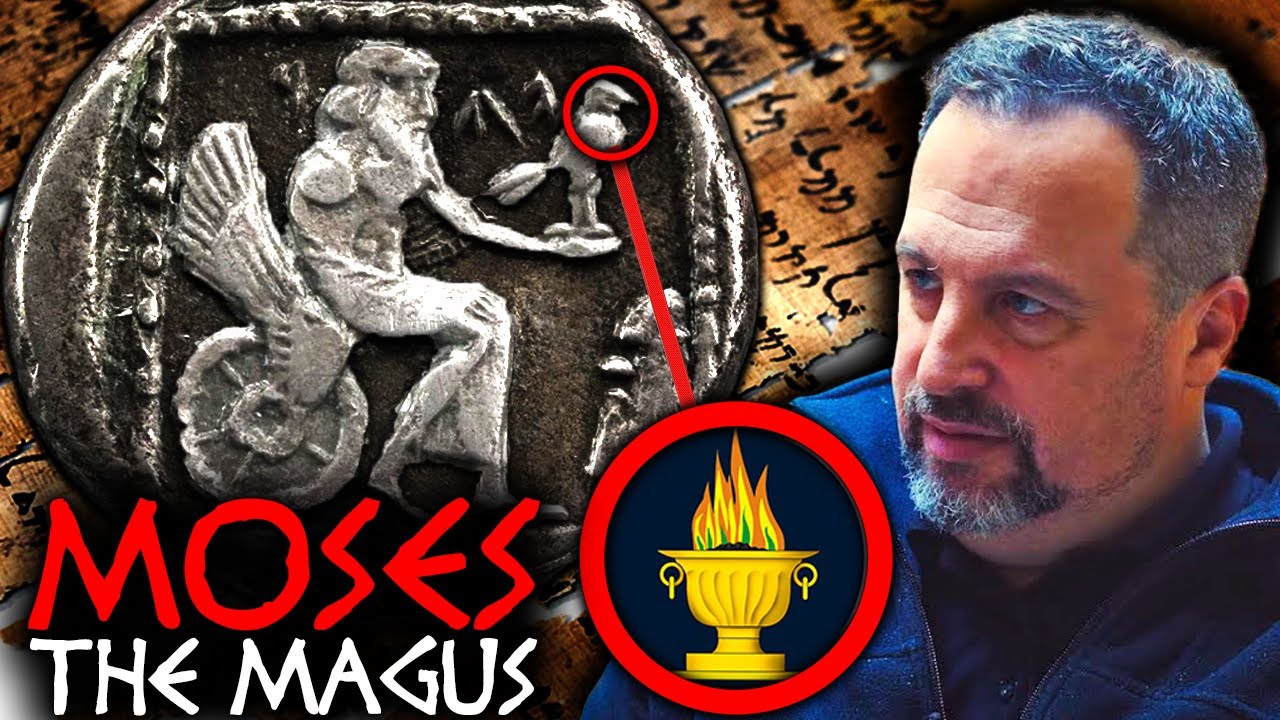
![When did Judaism begin? Prof. Yonatan Adler - The Origins of Judaism [4K]](https://www.ilovephilosophy.com/uploads/default/original/2X/b/b10971135db76710210710eb314ab749a32d0a32.jpeg)
